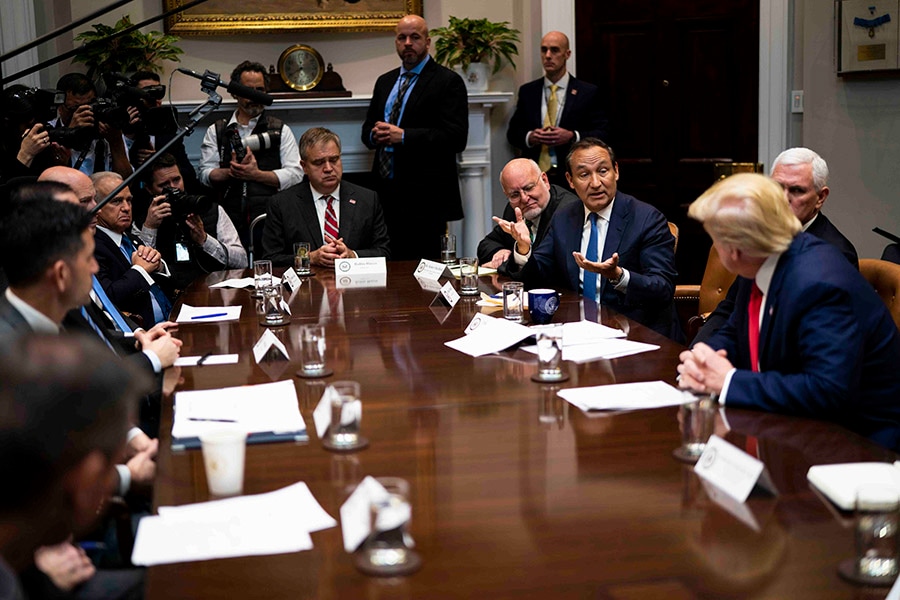
Airlines feel deepening impact as Coronavirus upends travel
Since January, airlines have reduced or canceled service to Hong Kong, South Korea, Japan, Italy and other destinations, as demand for travel abroad slid, leading to growing concern for the sector
 Oscar Munoz, chief executive of United Airlines, makes a point as airline chief executives meet with President Donald Trump and Vice President Mike Pence at the White House in Washington, March 4, 2020. United will curtail service on domestic and global routes as companies restrict trips, testing a long stretch of airline industry profitability. Image: Doug Mills/The New York Times
Oscar Munoz, chief executive of United Airlines, makes a point as airline chief executives meet with President Donald Trump and Vice President Mike Pence at the White House in Washington, March 4, 2020. United will curtail service on domestic and global routes as companies restrict trips, testing a long stretch of airline industry profitability. Image: Doug Mills/The New York Times
Since the financial crisis a decade ago, airlines in the United States have consolidated and tightened operations, taken advantage of changing travel habits, and created new offerings for passengers, engineering an extended stretch of profitability.
Now, the coronavirus threatens to put all of that to the test.
The latest example of the outbreak’s toll on the industry came Wednesday, when United Airlines became the first U.S. carrier to announce a widespread cut to domestic service, signaling that fear over the virus was starting to erode ticket sales far from the hot spots of the epidemic.
In a letter to employees, the airline’s top two leaders announced plans to cut international service in April by about 20% and domestic service by about 10%, with similar cuts possible in May. They also announced a hiring freeze through June and said workers in the United States could apply for voluntary unpaid leave.
“We sincerely hope that these latest measures are enough, but the dynamic nature of this outbreak requires us to be nimble and flexible moving forward,” Oscar Munoz, United’s chief executive, and J. Scott Kirby, who will take over that job in May, said in the letter.
Trans-Pacific flights, for which demand had fallen starkly as the virus seized Asia, will be halved in April, while trans-Atlantic service will be cut by about 10%. Latin American service will be reduced by 5%.
©2019 New York Times News Service




